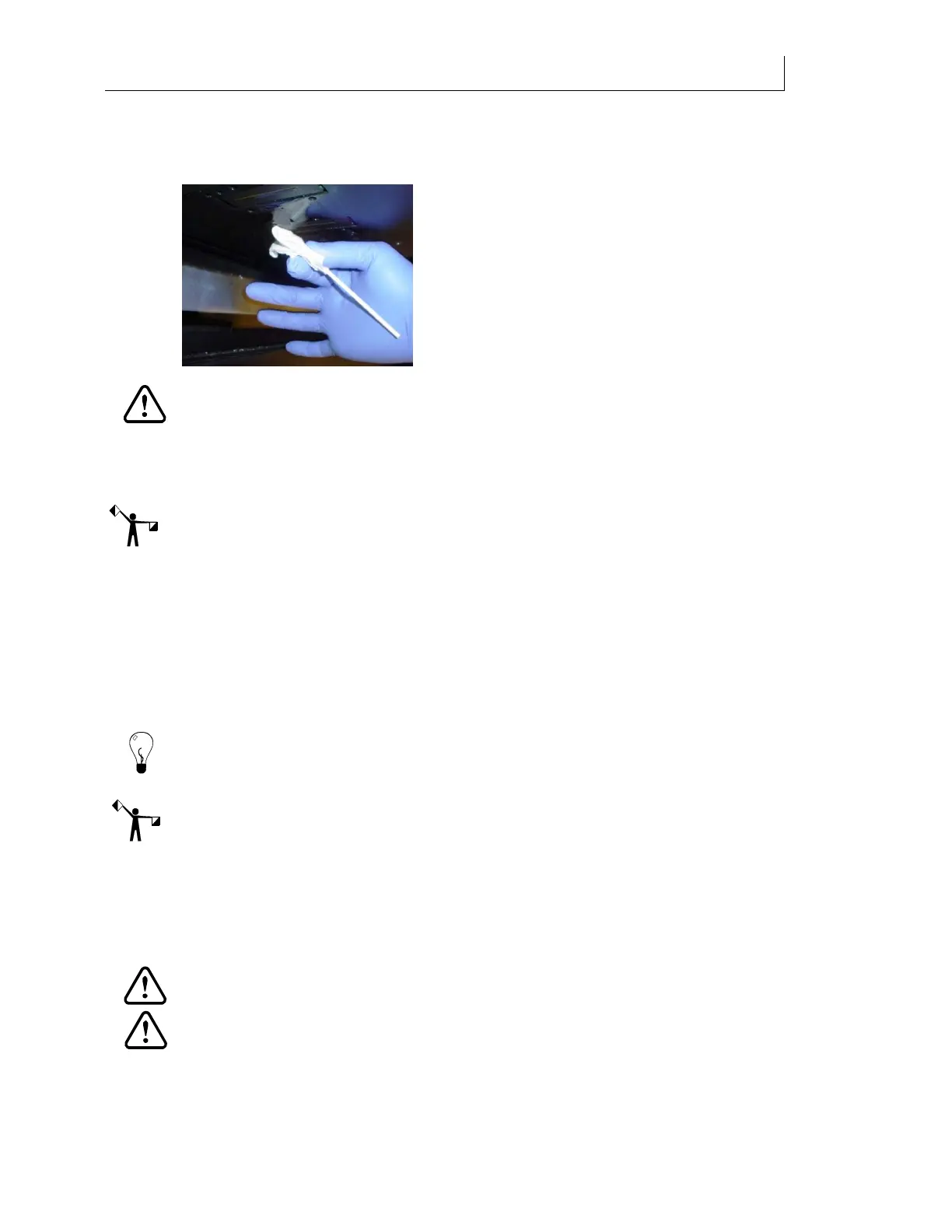CHAPTER 6
86
Routine Printer Maintenance
4/29/10 Rev G
9 Wipe the left-most printhead from back to front 2 times at a 45 angle, using light
pressure, by holding the swab in the middle of the stick, between the thumb and index
finger as pictured below.
CAUTION: Never reuse old swabs to clean the printhead. Never use the same
Anticon-covered swab on two different color printheads.
10 Repeat the previous steps for the remaining heads, moving from left to right, and
using a new Anticon-covered swab for each color printhead. The printer prompts you
to
Raise shelf when done.
Note: Prior to raising the Maintenance Shelf, be sure to complete the previous steps for all
printheads and check the UV shield and side plates for presence of wet and/or cured ink. If
PRESENT in either form, see “Cleaning the sliding UV Shield and side plates” instructions on
page 88 prior to proceeding.
11 Dispose of s
wabs and wipes according to state and local laws and regulations.
12 Raise the Maintenance Shelf and the printer returns to the home position and
automatically resets the Clean Heads procedure timer. The
Printer Ready screen
displays.
Tip: After a Clean Heads procedure, you can print a Nozzle Out test print to verify that all
printhead nozzles are firing properly. The Nozzle Out job is available from the Calibration
section of the printer’s Menu.
Note: A
Nozzle Out recommended message may appear which suggests that the ink reservoir
might have been exhausted during the recent procedure(s). Print a Nozzle Out job to determine
if nozzle health is OK or not. If it is OK, proceed as normal. If NOT, check ink levels via front
panel (see page 40). Replace any empty pouches and repeat the Clean Heads procedure. If none
are e
mpty and print quality of Nozzle Out job is poor, contact Gerber Service.
End of Day Clean
CAUTION: All 4 heads MUST be cleaned at the end of every print day.
CAUTION: During maintenance procedures, always wait for printer prompts
before lowering the maintenance shelf or opening the head access door. Performing
either of these actions prior to the prompts will cause an emergency stop and
require you to redo maintenance procedures from the beginning.
